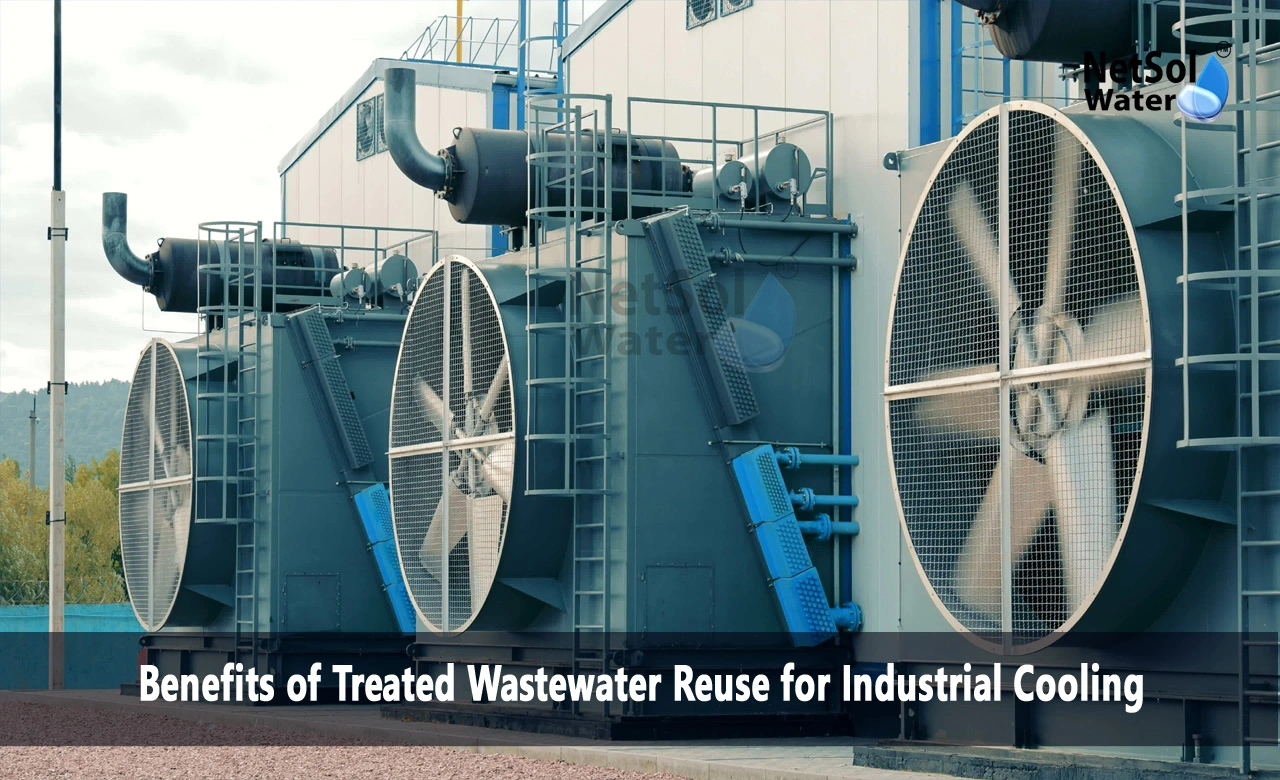Advantages of Treated Wastewater Reuse for Industrial Cooling
Water is crucial for industries worldwide, especially for processes like cooling systems. But with freshwater sources becoming scarcer and demand rising, we need sustainable water management. One smart solution gaining traction is using treated wastewater from treatment plants for industrial cooling. This not only reduces freshwater use but also eases pressure on water sources. By reusing treated wastewater, industries help conserve freshwater and promote sustainability. Plus, it's cost-effective and eco-friendly, benefiting both industries and communities.
Wastewater Treatment: A Renewable Resource
In the past, industrial cooling systems mainly used freshwater from rivers, lakes, or groundwater. But with these sources under pressure, we're looking for alternatives. Treated wastewater from municipal or industrial plants is a promising option.
With advanced treatment, wastewater can become a dependable and sustainable water source for industrial cooling. This not only cuts down on freshwater use but also lets us reuse and recycle treated wastewater, which is great for the environment and the economy.
Benefits of Treated Wastewater Reuse for Industrial Cooling
The reuse of treated wastewater for industrial cooling offers numerous benefits, making it an attractive solution for sustainable water management:
1. Water Conservation
By utilizing treated wastewater for cooling purposes, industries can significantly reduce their reliance on freshwater sources, contributing to water conservation efforts and alleviating the strain on precious freshwater reserves.
2. Cost Savings
The cost of treated wastewater is often lower than that of freshwater, particularly in regions where freshwater resources are scarce or require extensive treatment. By adopting treated wastewater reuse, industries can realize substantial cost savings in their cooling operations.
3. Environmental Benefits
Reusing treated wastewater reduces the need for discharging it into natural water bodies, minimizing the potential for environmental pollution and ecological disruptions. Additionally, it decreases the energy consumption and carbon footprint associated with freshwater extraction and transportation.
4. Regulatory Compliance
Many regions have implemented regulations and incentives to promote water conservation and reuse practices. By adopting treated wastewater reuse for industrial cooling, industries can demonstrate their commitment to sustainability and compliance with applicable regulations.
Treatment Requirements for Industrial Cooling
While treated wastewater offers a viable alternative for industrial cooling, it is essential to ensure that the water quality meets specific requirements to prevent issues such as scaling, corrosion, biofouling, and equipment damage. The treatment processes may involve:
1. Advanced Filtration
Filtration techniques, such as microfiltration or ultrafiltration, are employed to remove suspended solids, particulates, and contaminants from the treated wastewater, ensuring the cooling system operates efficiently and without clogging or fouling.
2. Disinfection
Effective disinfection methods, such as chlorination, ultraviolet (UV) radiation, or ozonation, are crucial to eliminate pathogenic microorganisms and prevent the growth of harmful bacteria or algae within the cooling system.
3. Desalination (If Required)
In some cases, particularly for industries located in coastal regions or utilizing brackish water sources, desalination processes like reverse osmosis may be necessary to reduce the salinity of the treated wastewater to acceptable levels for cooling applications.
4. Chemical Conditioning
The addition of specialized chemicals, such as corrosion inhibitors, scale inhibitors, or biocides, can help maintain the water quality and protect the cooling system components from potential damage or fouling.
Implementing Treated Wastewater Reuse for Industrial Cooling
The implementation of treated wastewater reuse for industrial cooling involves several key considerations:
1. Source Identification and Assessment
Industries must identify suitable sources of treated wastewater, such as municipal wastewater treatment plants or their own industrial wastewater treatment facilities. An assessment of the treated wastewater quality, quantity, and consistency is crucial for determining the appropriate treatment requirements.
2. Infrastructure and System Modifications
Existing cooling systems may require modifications or upgrades to accommodate the use of treated wastewater. This may include the installation of additional treatment units, piping modifications, or the replacement of specific components to ensure compatibility and optimal performance.
3. Monitoring and Maintenance
Continuous monitoring of water quality parameters, such as pH, conductivity, and microbial levels, is essential to ensure the treated wastewater meets the required specifications for cooling applications. Regular maintenance and cleaning protocols should be established to prevent fouling or scaling within the cooling system.
4. Stakeholder Engagement and Regulatory Compliance
Effective communication and collaboration with relevant stakeholders, including local authorities, regulatory bodies, and community members, are crucial for successful implementation. Compliance with applicable regulations and obtaining necessary permits or approvals is also a critical step in the process.
Case Studies and Success Stories
Numerous industries across various sectors have successfully implemented treated wastewater reuse for industrial cooling, demonstrating the feasibility and benefits of this sustainable practice. Case studies and success stories from pioneering companies can provide valuable insights, lessons learned, and best practices for others considering this approach.
Conclusion
As fresh water becomes scarcer, using treated wastewater for industrial cooling offers a sustainable solution. This practice helps industries save water, cut costs, and lessen their environmental impact.
Although there are challenges like treatment needs and infrastructure changes, the long-term benefits make treated wastewater reuse appealing for industries aiming for sustainable water management.
It'll take teamwork among industries, treatment facilities, regulators, and communities to make this solution widespread. Together, we can create a future where treated wastewater is valued as a resource, not wasted.
Do you need an advice or assistance on selecting the best water and waste water treatment unit? We have solutions for all your problems!
Let us now your problem, our experts will make sure that it goes away.
For an assistance or related query,
Call on +91-965-060-8473 Or write us at enquiry@netsolwater.com



